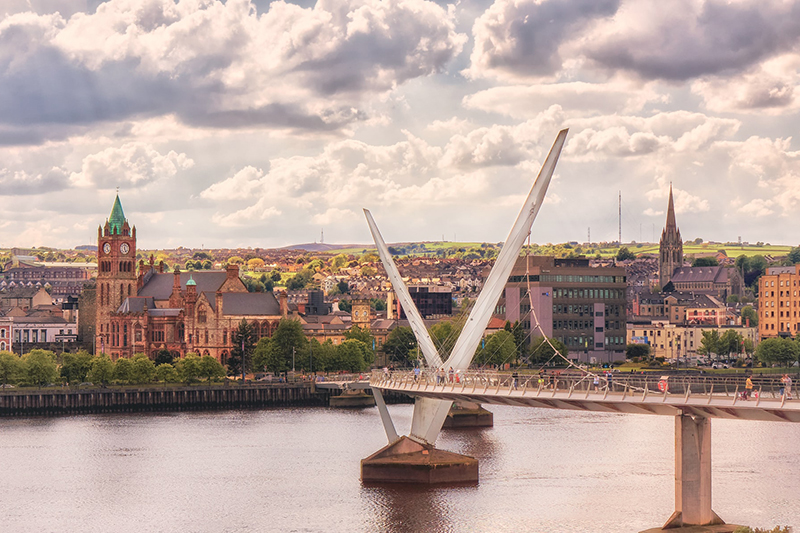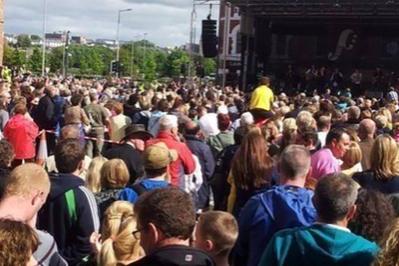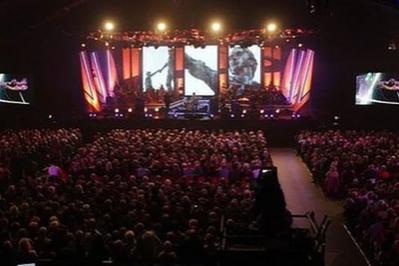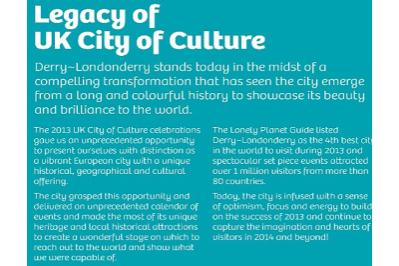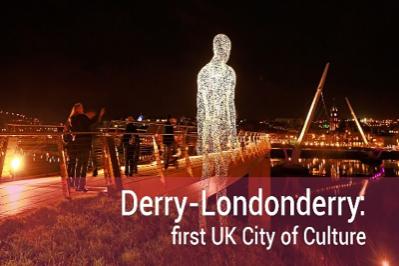From Plantation to Peace: Derry/Londonderry as the UK's first City of Culture
This findings from this research featured prominently, and informed, in internal debates within Derry City and Strabane District Council on the role of cultural planning in the economic development of the area. Evidence of this is the citation of our academic publications in the official evaluation of UK City of Culture (Derry City and Strabane District Council, 2016). On academic matters, our publications have contributed to ongoing debates, locally, nationally, and internationally, on the impact and legacy of cultural events. The researchers disseminate their findings at UK, European and international planning and geography conferences. Following the publications the PI was invited to join to the Cultural Policy Observatory Ireland, and AHRC Cities of Culture Network.
Leverhulme Trust, ID/Ref: RPG-2013-091, £197,819
Boland, P., Murtagh, B. & Shirlow, P. (2020) ‘Neoliberal place competition and culturephilia: explored through the lens of Derry~Londonderry’. Social & Cultural Geography, 21(6): 788-809.
Boland, P., Murtagh, B. & Shirlow, P. (2019) ‘Fashioning a City of Culture: ‘life and place changing’ or a ‘12-month party’. International Journal of Cultural Policy, 25(2): 246-265.
Boland, P., Mullan, L. & Murtagh, B. (2018) ‘Young people in a city of culture: ‘ultimate beneficiaries’ or ‘economic migrants’?’ Journal of Youth Studies, 21(2): 178-202.
Murtagh, B., Boland, P. & Shirlow, P. (2017) ‘Contested heritages and cultural tourism’. International Journal of Heritage Studies, 23(6): 506-520.
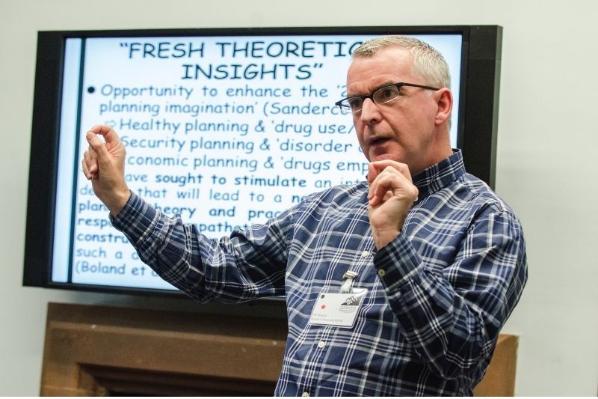
LEAD PROJECT INVESTIGATOR Phil Boland is a Reader at the School of Natural and Built Environment. His key research interests include Local and regional economic development; identity and place; culture-led regeneration; geography of the illegal drugs industry.
This research links to SDG 8.9 concerning Local Tourism and Local Culture. A specific focus of the research concerned the impact and legacy of UK City of Culture and in particular the number, quality, longevity and distribution of jobs that were created prior to, during and after the event took place. We were also interested in how CoC promoted the local cultural economy, and the gave energy and visibility to the different (historically competing) cultural identities of the city, and how it stimulated cultural respect and exchange. In this sense, it dovetails with SDG 8.9 and its focus on “policies to promote sustainable tourism that creates jobs and promotes local culture”.
Keywords associated with the Research
- Culture; economy; impact; legacy
Contact Details / Social Media
-
Dr Philip Boland
School of Natural and Built Environment
Queen’s University Belfast
028 9097 6564 - p.boland@qub.ac.uk
-
https://pure.qub.ac.uk/en/persons/philip-boland
https://twitter.com/dlcityofculture?lang=en
Further relevant info
- PhD student: Ms Lindsay Mullan
- Research Assistant: Dr Siun Carden

